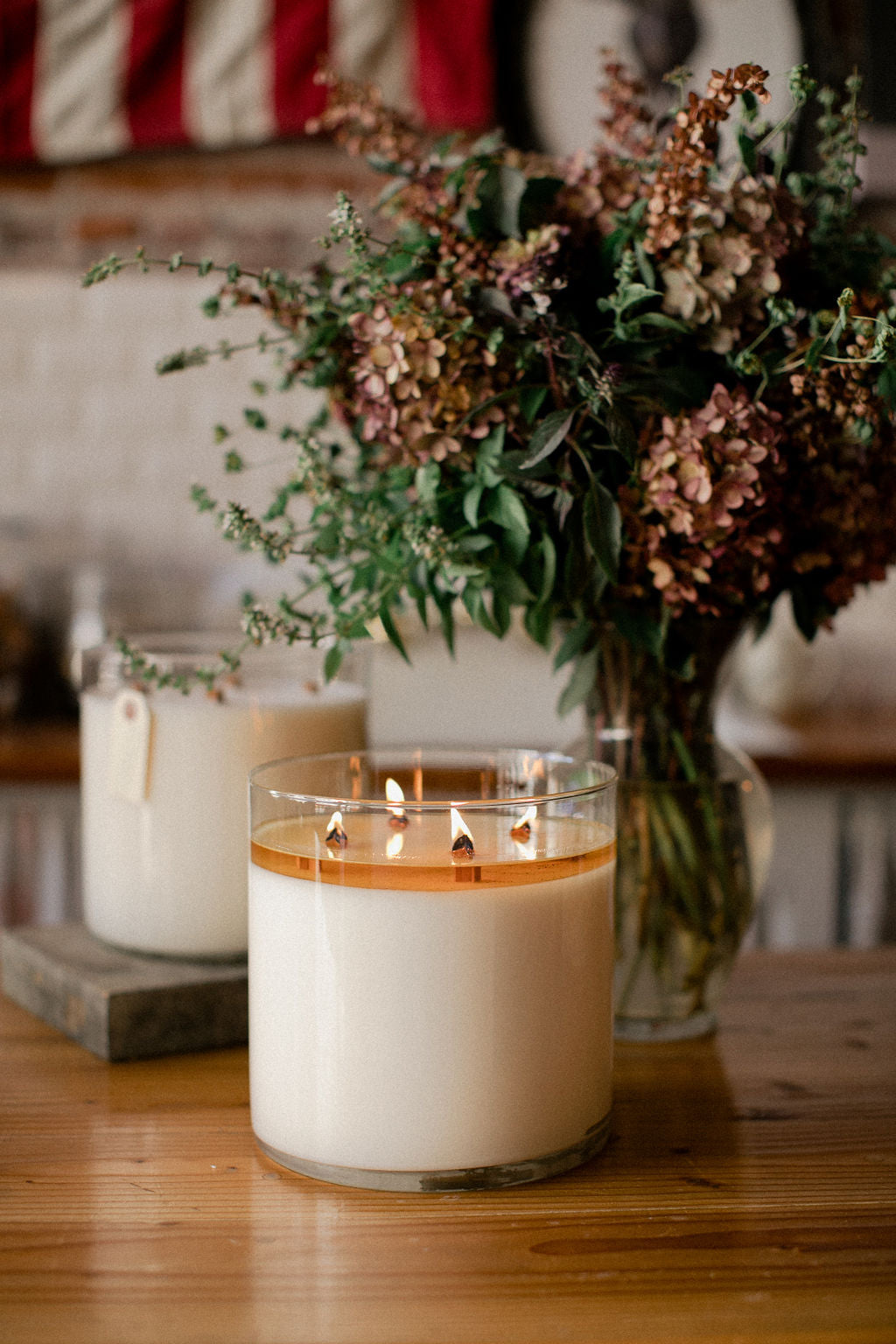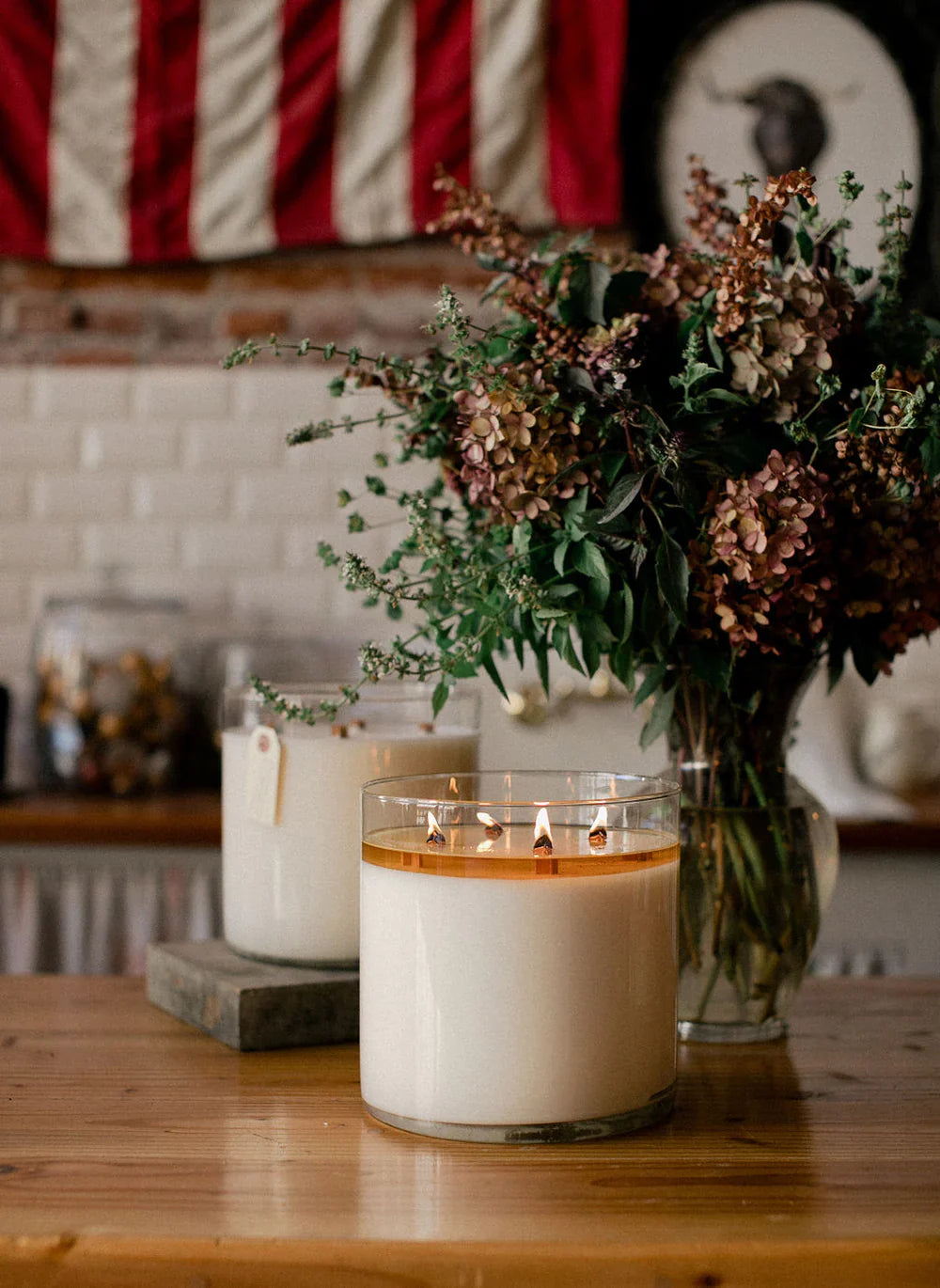The Magic of Fragrance and Nostalgia

Have you ever caught a whiff of a familiar scent and suddenly felt transported back in time, vividly recalling memories from long ago? Perhaps the smell of freshly baked bread reminds you of your grandmother's kitchen, or the scent of a certain perfume brings back memories of a past relationship.
Our sense of smell is closely linked to our emotions and memories, making it a powerful tool for evoking nostalgia and creating a sense of connection to our past. In this blog post, we'll explore the science behind the relationship between scents, memories, and nostalgia, and look at some common scents and the memories they often evoke.
The Science of Scents and Memories
The sense of smell is closely linked to the limbic system in our brain, which is responsible for our emotions and memories. When we smell a particular scent, it can trigger memories from our past, even from many years ago. This is because our olfactory system is connected to the limbic system, allowing scents to directly access our memories and emotions.
Research studies have explored this relationship, finding that certain smells can trigger memories and emotions more strongly than other senses. For example, a study published in the Journal of Neuroscience found that the scent of peppermint enhanced memory recall, while a study published in the International Journal of Neuroscience found that the smell of lavender reduced stress and anxiety.
The Power of Scents in Nostalgia
Nostalgia is a sentimental longing or wistful affection for a past period or place. When we encounter a scent that we associate with a past memory or experience, it can transport us back in time and bring back the emotions and feelings associated with that experience. The power of scents in evoking nostalgia is why many people use scents to create a sense of home and comfort in their living spaces, such as by lighting scented candles or using essential oils.
Common Scents and Associated Memories
Some scents are more commonly associated with memories and nostalgia than others. Here are some examples of common scents and the memories they often evoke:
- Lilacs: the sweet floral scent of lilacs is often associated with springtime and childhood memories of playing outside
- Wild Roses: the delicate fragrance of wild roses can evoke memories of a romantic stroll through a rose garden or a summer day spent in nature
- Field Grass: the fresh and earthy scent of field grass can remind us of camping trips or walks in nature
- Ranch: the smell of leather and hay can bring back memories of horseback riding or a visit to a ranch
- Farm: the combination of hay, manure, and animals can evoke memories of visiting a farm or living in a rural area.
- Using Scents to Enhance Memories and Create New Ones
We can intentionally use scents to enhance our memory recall and create new scent-memory associations. For example, using a specific scent while studying for an exam and then using the same scent during the test can help trigger memories from the study session. We can also create new scent-memory associations through intentional experiences, such as taking a cooking class and associating a specific spice with the experience.
Conclusion
Our sense of smell is a powerful tool for evoking memories and nostalgia, due to the direct connection between our olfactory system and the limbic system in our brain responsible for our emotions and memories. Scents can transport us back in time and bring back emotions and feelings associated with past experiences.
Some scents are more commonly associated with memories and nostalgia than others, and we can intentionally use scents to enhance our memory recall and create new scent-memory associations. By understanding the science behind the relationship between scents, memories, and nostalgia, we can use the power of scent to create meaningful connections to our past and enhance our experiences in the present.



